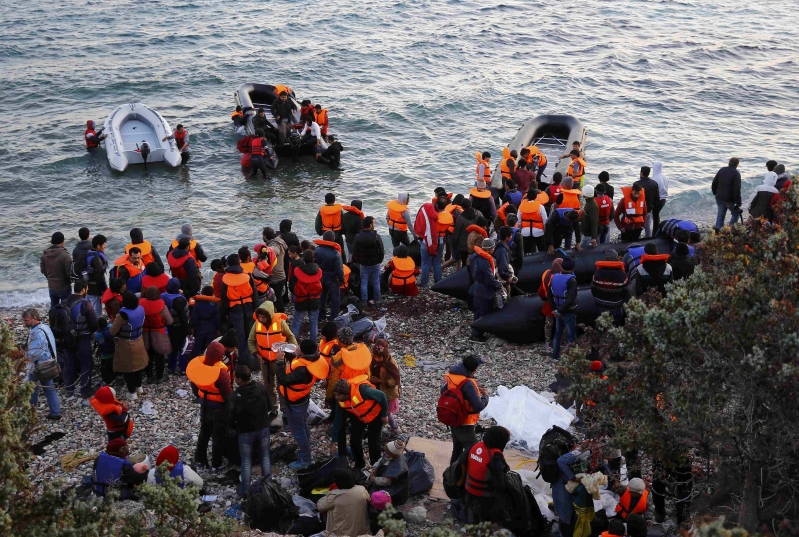
More children are joining the ranks of refugees streaming into Europe, with some families taking a new route from Turkey to Bulgaria to avoid crossing rough seas to Greece as winter sets in, the United Nations said on Wednesday.
At least 190,000 children have sought asylum in Europe so far this year, or 700 a day, out of 760,000 people who have crossed the Mediterranean, according to the U.N. Children's Fund (UNICEF).
Children - mainly Syrians and Afghans fleeing war - accounted for one in three refugees registered in Gevgelija in Macedonia in October, up from one in 10 who arrived via Greece in June, UNICEF said, quoting government figures.
"So the relative proportion of children amongst the population on the move is increasing," Marie-Pierre Poirier, UNICEF special coordinator for the crisis, told a news briefing after a week-long mission to Macedonia, Serbia and Croatia.
"Clearly the numbers are not decreasing, the overall numbers of people on the move. So the idea we had for a while that winter, bad weather, rough seas and all this would decrease the flow is not proving to be the case," she said.
Indeed, UNICEF said it was bracing for possible arrivals in Bulgaria, Romania and Albania because of early signs that desperate families on the move from the Middle East and Africa could change their route again as borders tighten.
"You sense in the group anxiety that maybe borders will close, maybe they will not be allowed through," Poirier said.
Hungary, faced with the biggest flow of migrants since World War Two, has erected a barrier along its southern border, diverting the migrant flow towards Croatia and Slovenia.
Bulgaria, Serbia and Romania warned last month that they would close their borders if Germany or other countries did the same to stop refugees coming in, saying they would not allow the Balkan region to become a buffer zone.
Although smugglers now offer discounts to cross the Mediterranean, down to $1,000 from $3,000-$5,000 per family in some cases, treacherous seas may dissuade some, Poirier said, and force others to seek alternative ways to reach continental Europe.
"We hear more and more - but it is premature to call it new route - so let's just say we see signs that there is an increasing number from Turkey that are not going across the water but are going through Istanbul and on the land road to Bulgaria," she said.






